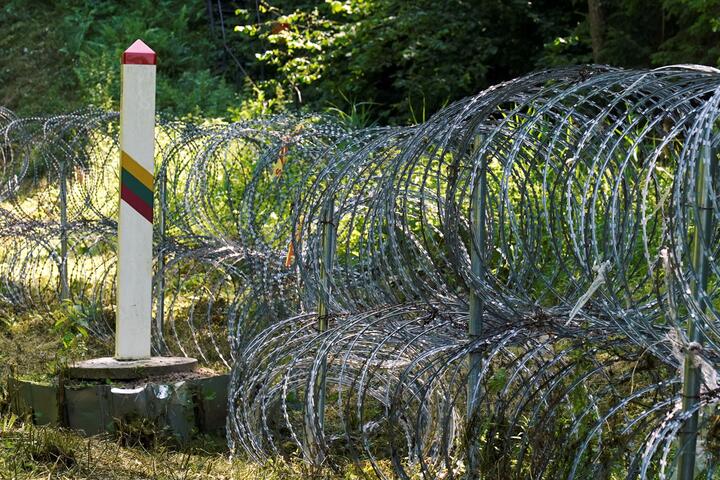Migration tidal wave against the EU fails, US and allies plan new sanctions on the anniversary of the Belarusian protests
 The situation got worse
The situation got worse

As predicted, instead of being invited to the negotiating table to find a joint solution to the migration crisis on the border between Belarus and the Baltic States and Poland and restore direct contacts with Brussels, Minsk risks accelerating the process of introducing new sanctions against itself by the EU. The United States plans to expand economic sanctions together with Canada and the UK and initiates the launch of an international tribunal against the Lukashenka regime.
Although the Belarusian authorities continue to play the migration crisis card to force the Baltic States and Poland – and through them the EU – to enter into direct negotiations with Minsk, the Belarusian Foreign Ministry is forced to admit the failure of this strategy. Accusing the EU of unilaterally freezing cooperation in border management and ignoring signals from Minsk, the Belarusian authorities tried to enlist the Office of the United Nations High Commissioner for Refugees (UNHCR). The Belarusian Foreign Ministry called on UNHCR to help resolve the situation and return the Lithuanian side to the legal field.
However, the Belarusian approach, which justifies the migration crisis, risks being the subject of an international investigation with ensuing global legal consequences. Earlier, the foreign affairs committees of the parliaments of 11 states(USA, Great Britain, Ireland, France, Germany, the Czech Republic, Poland, Estonia, Latvia, Lithuania, Ukraine) accused the Belarusian authorities of a deliberate politically motivated campaign to organise illegal migration and human trafficking.
Lithuania effectively mobilised EU support and used European solidarity to put pressure on one of the source countries of illegal migrants, Iraq, whose authorities have already cancelled flights to Belarus. Also, they initiated an investigation into the “plan to smuggle Iraqis to Europe”. Next, Brussels decided to hold an emergency meeting of EU interior ministers on August 18 on the migration crisis. At the same time, the prime ministers of Lithuania, Latvia and Estonia called on the European Union to expand individual and sectoral sanctions.
In the United States, the association of congressmen in support of democracy in Belarus (“Friends of Belarus”), created during the recent visit to Washington of the leader of the Belarusian opposition Sviatlana Tsikhanouskaya, took initiatives to establish an international tribunal for the Lukashenka regime, as well as to expand financial sanctions. In particular, they intend to block the allocation and use by Belarus of “special borrowing funds” (SDR) of the IMF with a total amount of USD1 billion, which are claimed by the Belarusian authorities in the fight against the consequences of the coronavirus pandemic. If the first initiative still looks very distant prospect, then the second – may well be implemented in practice by analogy with the cases of Venezuela and Myanmar, for which access to IMF SDR quotas was blocked due to political crises in these countries.
This measure, like many others, may be included in a new package of American sanctions, which the Administration of President Joe Biden may announce as early as August 9, the anniversary of the beginning of the protests in Belarus. The sanctions targets are likely to include the Lukashenka regime, Belaruskali, oil, woodworking and metallurgical enterprises. Together with the United States, the UK and Canada are also planning to expand sanctions, which became known after the visit of Tsikhanouskaya to London.
Subscribe to our newsletter




Situation in Belarus
Constitutional referendum: main consequences


 Video
Video
How to count the political prisoners: are the new criteria needed?


 Video
Video
Paternalism In Decline, Belarusian Euroscepticism, And The Influence Of Russia


 Video
Video












